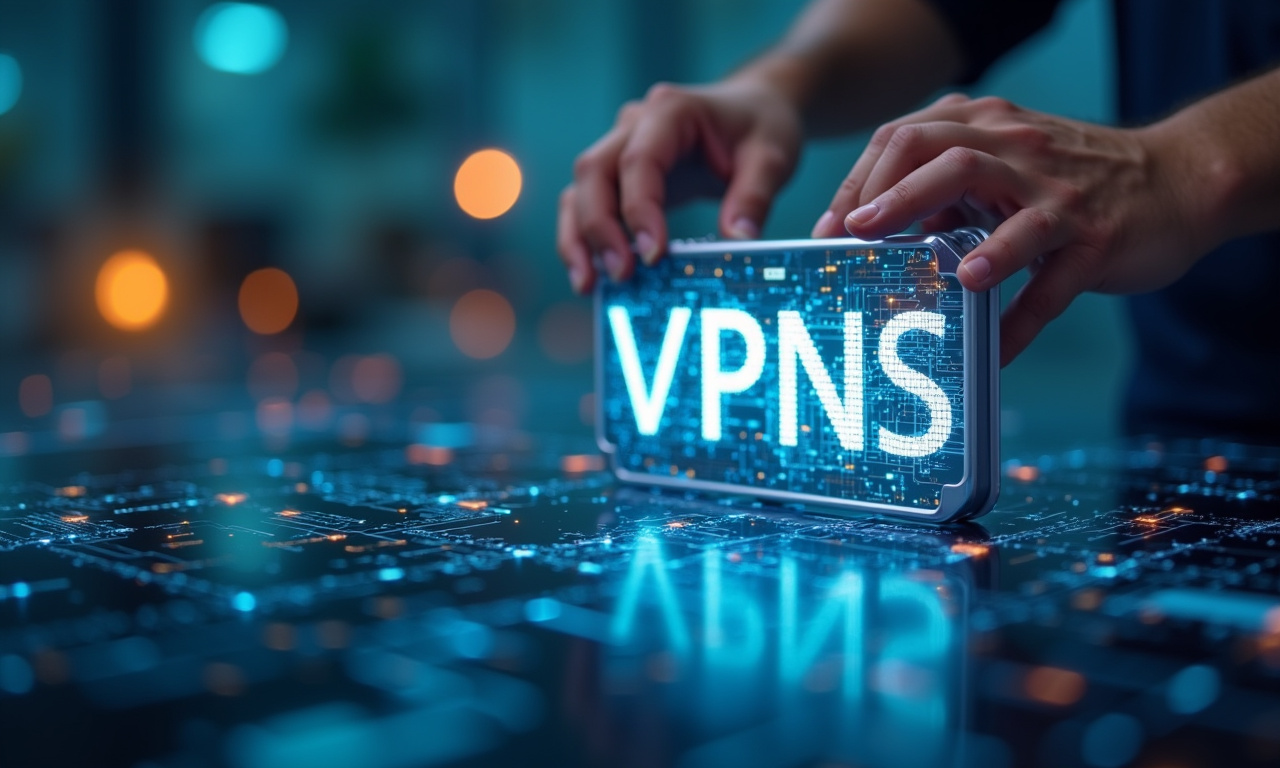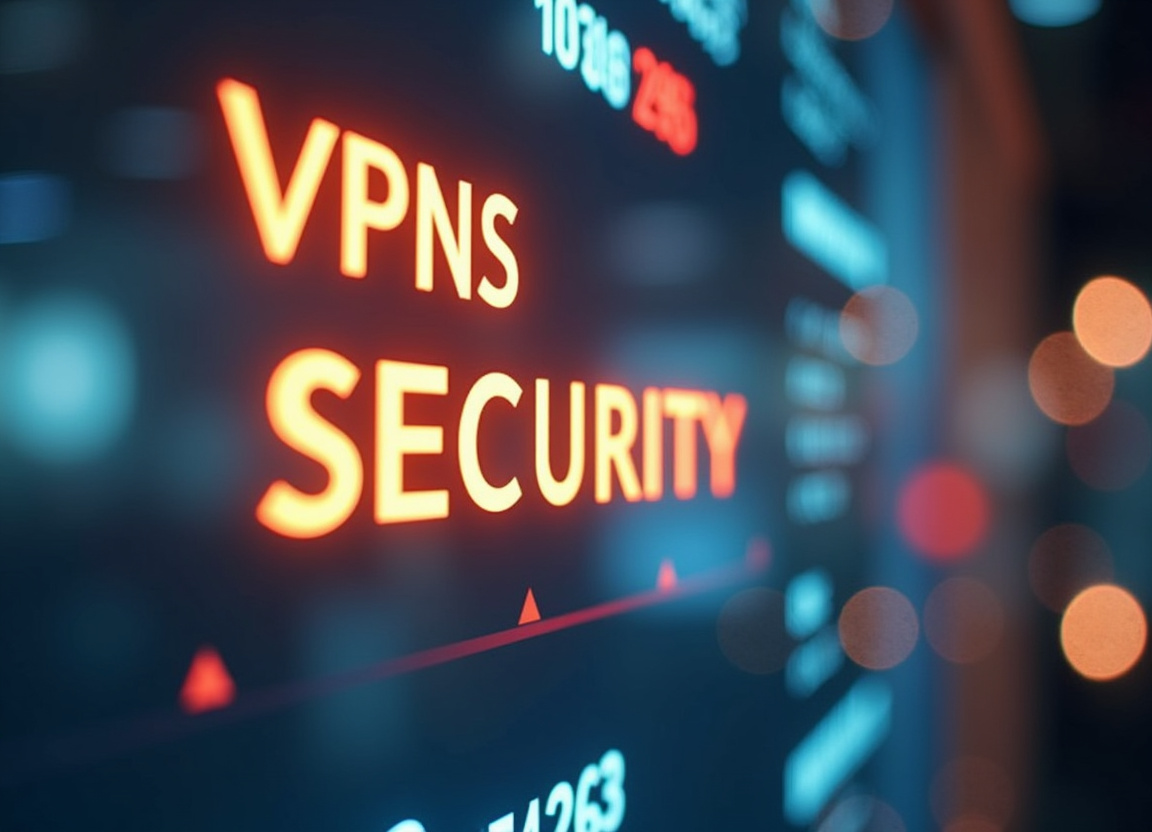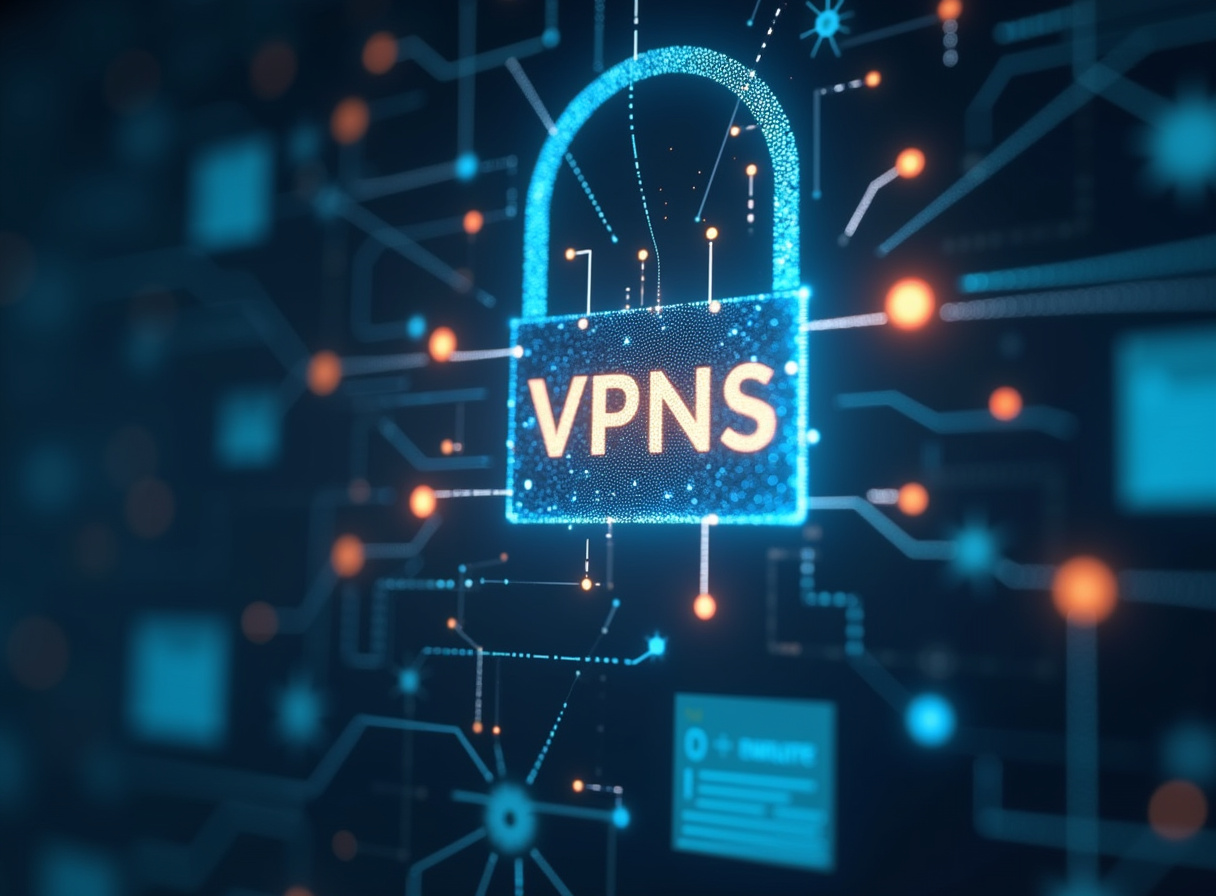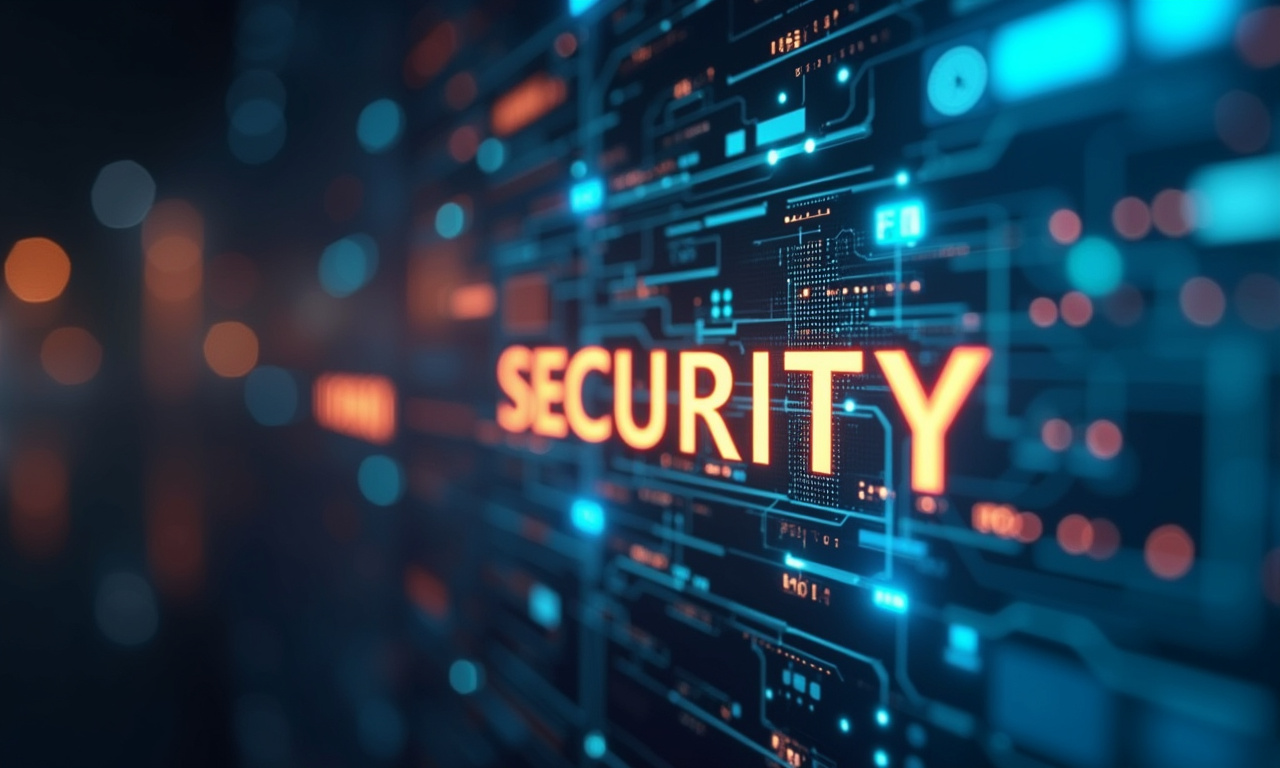VPNs for Eco-Friendly Manufacturing: Securing Sustainable Processes

Table of Contents
- Introduction: The Convergence of Sustainability and Cybersecurity in Manufacturing
- The Rising Stakes: Cybersecurity Threats Targeting Eco-Friendly Manufacturing Processes
- VPN Essentials: How VPNs Safeguard Eco-Friendly Manufacturing
- Implementation and Best Practices: Deploying VPNs for Optimal Security and Sustainability
Introduction: The Convergence of Sustainability and Cybersecurity in Manufacturing
In today's rapidly evolving industrial landscape, the convergence of environmental consciousness and technological advancement has given rise to eco-manufacturing – a transformative approach that prioritizes sustainability while maintaining operational efficiency. However, this paradigm shift introduces unique cybersecurity challenges, particularly concerning data protection and process security. As eco-manufacturing facilities increasingly rely on interconnected systems, cloud computing, and advanced analytics to optimize resource management, minimize waste, and mitigate their environmental impact, they also become more vulnerable to cyberattacks that can compromise both their operational integrity and sustainability goals.
This underscores the critical need for robust cybersecurity measures, with Virtual Private Networks (VPNs) for industry emerging as a vital solution for securing sustainable manufacturing processes. A VPN acts as a secure and encrypted tunnel, effectively shielding data transmitted between eco-manufacturing facilities, their partners, suppliers, and cloud service providers. This encryption ensures that sensitive information, such as proprietary manufacturing processes, supply chain logistics, and customer data, remains confidential and protected from unauthorized access.
As organizations prioritize “going green,” the increased use of connected devices in sustainability efforts calls for strong safeguards. Moreover, VPNs bolster process security by establishing a secure and authenticated communication channel for remote monitoring and control of manufacturing equipment. This is especially critical in eco-manufacturing, where geographically dispersed facilities might require remote management to optimize energy consumption, minimize waste generation, and ensure regulatory compliance.
With a robust VPN solution, eco-manufacturing companies can safeguard their intellectual property, maintain seamless operational integrity, and demonstrate tangible compliance with increasingly stringent environmental regulations, strengthening their brand reputation and building stakeholder trust. The escalating reliance on data-driven insights in eco-manufacturing accentuates the profound importance of comprehensive data protection, a function expertly fulfilled by industry-grade VPNs. In settings from analyzing intricate energy consumption patterns to optimizing raw material usage and predicting equipment maintenance needs, data stands as the beating heart driving sustainable manufacturing processes.
A VPN robustly encrypts this data as it journeys across networks, preventing eavesdropping, tampering, and data breaches by malicious actors. Strong data protection methods are not only essential for maintaining a competitive advantage in the eco-manufacturing market, but also for ensuring the accuracy, integrity, and reliability of data used for environmental reporting and compliance purposes. Inaccurate reporting can lead to fines, reputational damage, and ultimately, undermine the very sustainability goals the organization is striving to achieve.
Furthermore, VPNs enable eco-manufacturing organizations to demonstrate compliance with stringent data privacy regulations, such as the General Data Protection Regulation (GDPR) and the California Consumer Privacy Act (CCPA). These regulations mandate the protection of personal data collected from customers, employees, and other stakeholders. By encrypting data and controlling access, VPNs help eco-manufacturing companies meet their data privacy obligations, build trust with their stakeholders, and avoid costly penalties.
Beyond securing data and processes, a VPN can also indirectly contribute to sustainability efforts by enabling remote work and collaboration. By providing secure access to internal resources from anywhere in the world, VPNs reduce the need for physical travel, decreasing carbon emissions associated with commuting and business trips. This aligns with the broader goal of reducing the environmental footprint of the manufacturing industry.
As more eco-manufacturing companies embrace digital transformation as a core tenet of their operations, protecting all digital interactions and communications grows increasingly prominent. Eco-manufacturing VPNs provide the necessary data protection and process security to ensure sustainable practices are upheld without sacrificing operational efficiency and data integrity. By mitigating the risks associated with cyber threats in the digital space, eco-manufacturing firms are guaranteed operational resilience which facilitates continuous process improvement and minimizes environmental impact.
Properly implemented eco-manufacturing VPNs ultimately enable these businesses to thrive in a technologically-driven, environmentally conscious time.
The Rising Stakes: Cybersecurity Threats Targeting Eco-Friendly Manufacturing Processes
The bedrock of a successful eco-manufacturing VPN solution resides in fostering unparalleled process security across the entire manufacturing lifecycle, creating a secure and trustworthy foundation from raw material procurement stage to final product distribution. From preventing intellectual property theft and supply chain interference to ensuring regulatory compliance, process security is essential for any eco-manufacturing business hoping to run smoothly. One of the main benefits of deploying a VPN to enhance process security is in its capability to construct a well-guarded digital perimeter encompassing all crucial manufacturing systems.
This perimeter acts as a formidable barrier that prevents any unauthorized access to delicate data like precise manufacturing process parameters, proprietary recipe formulations, and quality control data. This controlled access protects trade secrets and maintains production integrity, reducing the risk of disruptions or data leaks that can harm operations. In addition to creating a protective barrier, a VPN can also strategically segment the network, thus isolating what are identified as critical systems from less secure zones, like guest Wi-Fi.
This segmentation drastically reduces the likelihood of a single cyberattack spiraling outwards to compromise an entire eco-manufacturing site. These layers of security are essential as facilities grow, ensuring that increasing complexity doesn’t mean increasing the risk of cyber threats. Given the complexities of eco-manufacturing, integrating multiple security layers – including access controls, intrusion detection systems, and regular security reviews – alongside a VPN is highly beneficial.
The integrated protection model protects against wide-ranging threats and provides a resilient, multi-faceted strategy so operations remain secure. Eco-manufacturing frequently engages highly specialized equipment and sophisticated software which might not integrate seamlessly with conventional security applications. A VPN is extremely valuable here, due to its ability to adapt to particular requirements within diverse eco-manufacturing plant environments.
This high level of adaptability includes setting up the VPN to support specific industry protocols, utilize specialized encryption algorithms, or authenticate various verification methods. Using a highly-customized installation guarantees that core technologies receive an appropriate level of protection, avoiding gaps and vulnerabilities that, if left unmonitored, might become targets. To protect data transit and enhance safety, VPNs can safeguard quiescent data, encrypting it on servers and storage devices housing private manufacturing data.
Integrated data encryption with highly efficient VPN deployment secures all accessible data from both inside and outside vulnerabilities. Reliable VPN solutions also improve resilience within processes, by delivering dependable, protected emergency communication channels if core networks fail or get attacked. The alternative channels remain active throughout disruptions, enabling continuous remote device surveillance and immediate system control to ensure vital manufacturing activities remain uninterrupted.
This minimizes any costly operational downtimes and demonstrates compliance with security compliance standards. Furthermore, integrating VPNs boosts broader sustainability goals by enabling protected remote communication methods and dramatically lowering physical travel demands. Designers, engineers, and management personnel benefit by having secure remote access to crucial plant resources no matter where they are, reducing their corporate carbon footprint from travel and commutes.
By increasing the ability to diagnose equipment remotely and fix defects using protected internet connections, VPNs enhance resource conservation alongside streamlining waste reduction methods, thus establishing increased green infrastructure efficiency, and making meaningful contributions towards overall eco-manufacturing sustainability efforts. Robust and integrated security solutions, especially adaptive VPNs, increase security in eco-manufacturing which also supports long-term ethical production practices.
VPN Essentials: How VPNs Safeguard Eco-Friendly Manufacturing
Data protection in eco-manufacturing goes beyond simply preventing unauthorized access; it encompasses maintaining the integrity, availability, and confidentiality of critical data assets. Implementing a robust eco-manufacturing VPN solution that adheres to stringent data protection principles is essential for fostering trust, ensuring regulatory compliance, building strong brand reputation and enabling informed decision-making. This holistic approach to data protection addresses risks comprehensively, ensuring sustainable and secure operations.
VPNs leverage encryption protocols to transform data into an unreadable format during transmission, safeguarding it from interception by malicious actors. Strong encryption algorithms like AES (Advanced Encryption Standard) provide a high level of confidentiality to eco-manufacturing operations, ensuring that sensitive manufacturing data remains protected whether the data is intercepted or not. By turning information into complex, secure code during transport, data confidentiality remains intact within the network environment.
Furthermore, VPNs utilize robust authentication mechanisms to verify the identity of eco-manufacturing system users’ and connected devices attempting access across networks. Multi-factor authentication (MFA) adds an extra layer of essential security that requires users provide multiple forms of identification, such as combining a password, security questions, or a one-time code generated from mobile devices. This substantially reduces the risk associated with credential theft or unauthorized access, giving additional security layers that protect sensitive infrastructures.
To ensure crucial eco-manufacturing data integrity, VPNs employ hashing algorithms designed to create unique digital fingerprints of data packets. If a data packet is tampered with or otherwise altered during its transmission, the sophisticated hashing algorithms will recognize the modification immediately, alerting the receiving party and system administrators to a potential data compromise for quick action. High-level integrity checks ensure that the information used in various decision-making processes during operations is accurate and consistently reliable.
Using verified data points boosts decision effectiveness significantly. Ensuring continuous data availability represents essential data insurance that is crucial for consistent eco-manufacturing sustainability and operations. In maintaining constant process uptime, VPNs establish secure, reliable connections to both cloud-based storage systems plus backup networks, guaranteeing full data access is maintained even during severe outages or other system failures.
Deploying redundant VPN servers and robust network connections enhances data accessibility using backup communication technologies in cases where core connections become unavailable. Moreover, comprehensive eco-manufacturing data loss prevention (DLP) strategies are designed to greatly promote enhanced protections from data vulnerabilities. Sophisticated DLP tools monitor extensive data traffic, identifying sensitive information, data pertaining to customer details or proprietary manufacturing processes, that may reveal potential breach attempts or leaks.
Integrating VPNs amplifies protected remote applications and devices that prevent data breaches from spreading through the protected digital perimeter. Through a focus on data availability, eco-manufacturing companies can prevent extended downtime and ensure resilience within operational activities across all business units. Comprehensive and reliable VPN solutions help ensure sustainable performance for all data driven functions.
Implementation and Best Practices: Deploying VPNs for Optimal Security and Sustainability
Sustainability is no longer a buzzword but a core business imperative for the manufacturing industry. Eco-manufacturing VPN solutions not only enhance security but also directly contribute to sustainability initiatives by optimizing resource utilization, reducing energy consumption, and minimizing waste generation. By enabling secure remote access to manufacturing systems and data, VPNs reduce the need for physical travel.
Reducing travel equates to a decreased carbon footprint due to fewer emissions from transport. This remote access encourages more flexible work arrangements, which enables employees to work from home, diminishing their carbon footprint from daily commutes and travel. This also reduces facility energy uses by saving on office space and resources used for in-person operations.
Eco-manufacturing VPNs enable real-time monitoring and management of energy consumption across manufacturing facilities. With secure remote access, energy managers can track energy usage patterns, identify areas of inefficiency, and implement corrective actions to reduce energy waste. This allows for greater sustainability as energy reduction is one of the primary objectives of eco-manufacturing.
Furthermore, VPNs streamline supply chain management by providing secure communication channels for coordinating with suppliers, carriers, and distributors. By optimizing logistics and reducing transportation distances, manufactures are able to save on fuel consumption and reduce supply chain emissions. The reduction in shipping materials and optimized deliveries are additional sustainability benefits stemming from using VPNs for managing the supply chain.
Eco-manufacturing VPNs can also facilitate the adoption of circular economy practices by enabling secure data sharing and collaboration among businesses involved in recycling, remanufacturing, and reuse. VPNs allow for a secured exchange of information on material composition, product design, and end-of-life options, which promotes efficient resource recovery. This promotes greater sustainability as it diverts usable materials from landfills.
Similarly, the adoption of digital twins of complex manufacturing pieces of equipment can be utilized in a VPN for secure data transmission. Digital twins enable manufacturers to simulate equipment performance, predict potential problems, and optimize maintenance schedules. This enables manufacturers to minimize downtime, maximize equipment lifespan, and reduce the resources that are required for repairs.
This also reduces waste as equipment stays in operation longer. Integrating sustainability directly into manufacturing operations improves the effectiveness of eco-manufacturing businesses. Eco-manufacturing VPNs not only ensure comprehensive security but enhance overall sustainability efforts by optimizing resource use, streamlining eco-friendly supply chains, promoting circular economic activities, and applying digital twin technologies.
As businesses strive for sustainability, VPNs function as essential instruments, promoting both digital security and environmental accountability. VPNs are therefore seen as essential tools that promote sustainability objectives and bolster eco-manufacturing operations. With their versatility being able to facilitate a more ethical and environmentally aware manufacturing industry, VPNs stand as a sustainability ally.
VPNs secure data along with advancing responsible and sustainable manufacturing practices. They promote the essential security and environmental integrity for forward-thinking businesses.
In conclusion, VPNs represent a critical component of a comprehensive security strategy for eco-friendly manufacturing, directly addressing the unique challenges of protecting sustainable processes. Moving to eco-manufacturing is about integrating advanced technologies and interconnected systems, which raises the risk of potential cyber threats. Companies are able to face these challenges using VPNs that protect sensitive data and facilitate secured manufacturing operations.
Eco-manufacturing VPN solutions serve as an essential tool that supports data protection, process security, and sustainability, thereby aligning with the core values of environmentally conscious businesses. The core advantages of VPNs are that they ensure data confidentiality with advanced encryption, maintain operational integrity, and facilitate sustainability measures directly. The integration of strong encryption technologies makes sure that proprietary and sensitive data cannot be intercepted or accessed by malicious actors.
This high amount of security is incredibly important for protecting data that is tied to business operations, and ensuring data privacy to maintain compliance with regulatory requirements. The ability to build secure communication channels using VPNs helps enhance manufacturing processes’ reliability, which enables protected remote monitoring, troubleshooting issues, and implementing critical updates of equipment. Remote operations decrease the need for physical interventions and save resources, which results in better overall efficiency with significant environmental benefits.
Beyond operational efficiencies, VPNs foster sustainability throughout eco-manufacturing supply chains, as they enable manufacturers to be better at monitoring usage of resources and reducing power usage. VPNs facilitate the widespread integration of circular business models where businesses involved in recycling and reuse can exchange data securely. Secure transmission of data associated with materials, compositions, and the best practices for end-of-life options contributes significantly to the overall goal of efficient resource recovery, further driving sustainable operations as a standard function through responsible manufacturing.
Looking to the future direction of eco-manufacturing, VPNs continue to evolve to manage the growing sophistication of cyber threats and the increasing reliance on connected technologies. Quantum-resistant encryption, AI-enhanced threat detection, and blockchain-secured data integrity checks are all examples of improvements needed in VPN technology. Businesses need to stay informed on the latest trends in both cyber security and sustainable manufacturing to ensure they fully maximize the multiple benefits VPNs can provide, in order to ensure long-term operational integrity and environmental stewardship.
For eco-manufacturing, integrating sustainable practices not only increases profitability but ensures companies follow their ethical and environmental considerations. A comprehensive eco-manufacturing VPN supports digital security and provides a key component of corporate responsibility. Implementing VPNs demonstrates responsibility and allows for the safeguarding of long-term digital environments and sustainability objectives concurrently.
Eco-manufacturing VPNs are fundamental to promoting responsible, ethical, environmentally sustainable values. These technologies enable companies to innovate reliably and improve the ethical production principles and practices needed when developing sustainable business operations.
Stay Updated
Get the latest VPN news, tips, and exclusive deals to your inbox.




